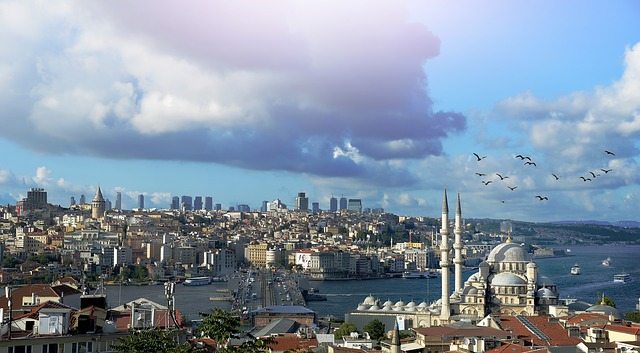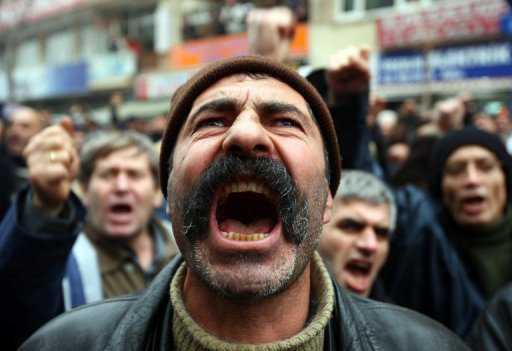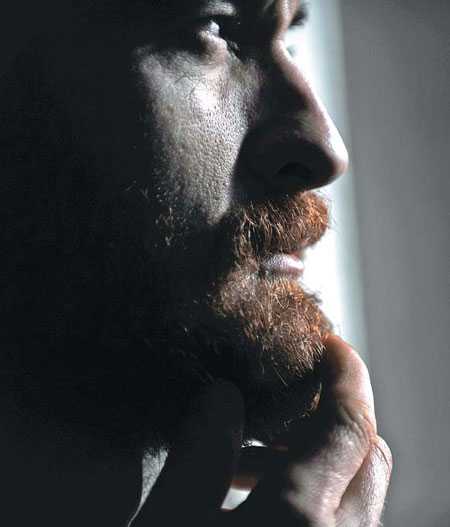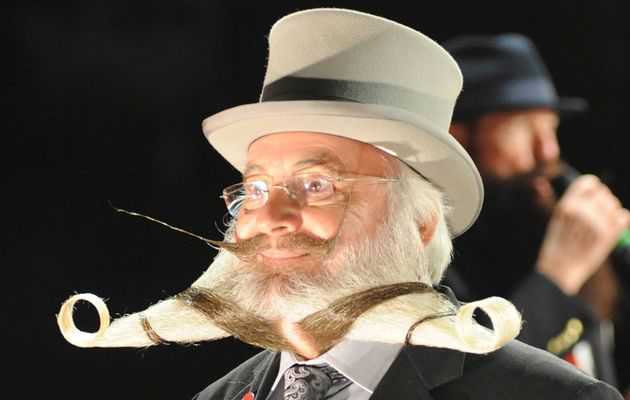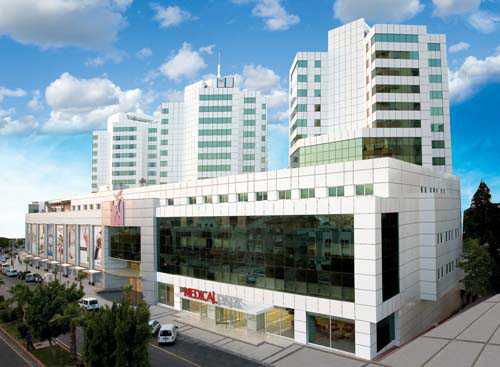Fahad Ali, a 27-year-old medical tourist from Britain, is prepared for hair transplant at a clinic of Esteworld, an aesthetic private hospital group, in Istanbul, March 30, 2013.
ISTANBUL — Sitting in a private clinic in an upscale neighborhood of Istanbul, Saleh, a human resources executive from Qatar, is preparing to leave Turkey with a smile on his face and more hair on his head.
Having previously brought his wife and children to Istanbul for sightseeing and shopping, Saleh has returned as the new kind of high-spending visitor Turkey is increasingly seeking to attract: a medical tourist.
“There’s a social pressure to look good,” the casually suited executive, declining to give his family name, told Reuters as he sat waiting for a check-up a day after having hair follicles implanted in his balding scalp. “Two of my brothers and half of my friends had hair implants in Turkey. It was an easy choice after that.”
As it tries to boost tourism revenues and narrow its current account deficit, its main economic weakness, Turkey is on a mission to diversify away from the all-inclusive package tours to its sun-drenched Mediterranean shores which, local businesses complain, often do too little for the local economy.
Of 37 million tourists visiting Turkey last year, about 270,000 came for surgical procedures, from mustache implants and liposuction to operations for serious ailments, generating $1 billion in revenues and representing a small but growing fraction of tourism receipts.
“They usually come for three days. We offer them shopping or skiing tours, they get well and have a short vacation,” said Kazim Devranoglu, the medical head of Dunyagoz Group, which has 14 eye care clinics in Turkey and branches in western Europe.
Around 10 percent of the group’s patients – some 35,000 people a year – are now coming from abroad, he said. “They are mostly from western European countries like Germany, the Netherlands, Belgium, as well as from Algeria and Azerbaijan.”
There are various factors behind Turkey’s appeal.
People from countries with heavily congested health systems welcome the opportunity to choose the time of their surgeries, while those from less-developed nations are attracted by Western-trained medics and new facilities sprouting up as Turkey’s private healthcare industry flourishes.
The mustachioed stars of Turkish soap operas, popular across the Middle East and North Africa, have also prompted an influx of men seeking a virile addition to their upper lip.
Health professionals and patients say plastic and corrective eye surgery costs, including travel and accommodation, can be up to 60 percent below comparable programs in Western Europe.
The government aims to double medical tourist numbers to half a million a year over the next two years and raise revenues to $7 billion by attracting them to higher-margin healthcare.
“We see Turkey as a prime destination for medical tourism,” said Dursun Aydin, head of the international patients department at the Health Ministry. “We have experienced doctors. Hospitals are new…Turkey is relatively inexpensive and the temperate climate helps too.”
Tax-Free Health Zones
The phenomenon is a boon not only for Turkey’s tourism industry, which risks locking itself into a price war with rival destinations such as Greece and Spain, but also for its booming private healthcare industry.
Parliament passed new regulations in February to make private investment in the healthcare sector easier; a move it hopes could unlock billions of dollars of investment over the next few years.
Private equity investors favor Turkey’s fast-growing services industries, including healthcare and education, because of a near tripling of nominal, per capita gross domestic product over the past decade and a young population of 75 million.
Foreign institutions including Malaysia’s state investment arm Khazanah Nasional, U.S. private equity firm Carlyle, emerging markets investor ADM Capital, Qatar’s First Investment Bank and the World Bank’s International Finance Corp (IFC) have put money into the Turkish healthcare sector.
Turkey’s status as a medical tourism destination could add to the allure. Though the idea is still on the drawing board, the government is considering airport-accessible, tax-free health zones which would aim to attract up to 85 percent of their patients from abroad, while offering tax incentives for investors.
Under the new law passed in February, which facilitates public-private partnerships, the state will rent city hospitals built and run by the private sector for 25 years.
“The aim is to revitalize aging hospitals. While built primarily for Turkish citizens, they’ll be luxuriously equipped and will aim to draw at least some of their customers from abroad,” said the Health Ministry’s Aydin.
Economic Dividend
Growth has already been phenomenal, said Tolga Umar, chief executive of Visit and Care, a patient and doctor matching service which helps visitors from the Middle East and Europe.
“We’ve been matching patients and doctors for six years now. Back then there were few other players, but now hospitals have international patient management departments doing direct marketing,” he said. “Even tour operators ask prior to a visit whether you want to have a dental exam or corrective eye surgery.”
Boosting tourism revenues is key to keeping a lid on Turkey’s current account deficit, which narrowed to around six percent of GDP in 2012 from roughly 10 percent in 2011. Net tourism receipts reached $21.6 billion last year, while the current account deficit stood at $47 billion.
Turkey is the world’s sixth top destination by tourist arrivals, according to the World Tourism Organization, but it may require strategies such as the medical tourism drive to maintain that status.
“Decreasing prices in Greece and Spain since the debt crisis mean that the competition for tourists is more intense,” said tourism consultant Fehmi Kofteoglu.
Timur Bayandar, head of Turkey’s TUROB tourism industry association, said “What the industry needs is alternative tourism channels like medical and shopping tourism.”
That could mean men with red dots on their heads – a tell-tale sign of freshly implanted follicles – becoming a more common sight as they stroll through Istanbul’s designer malls, snapping up a last few purchases at the end of their medical tours.

